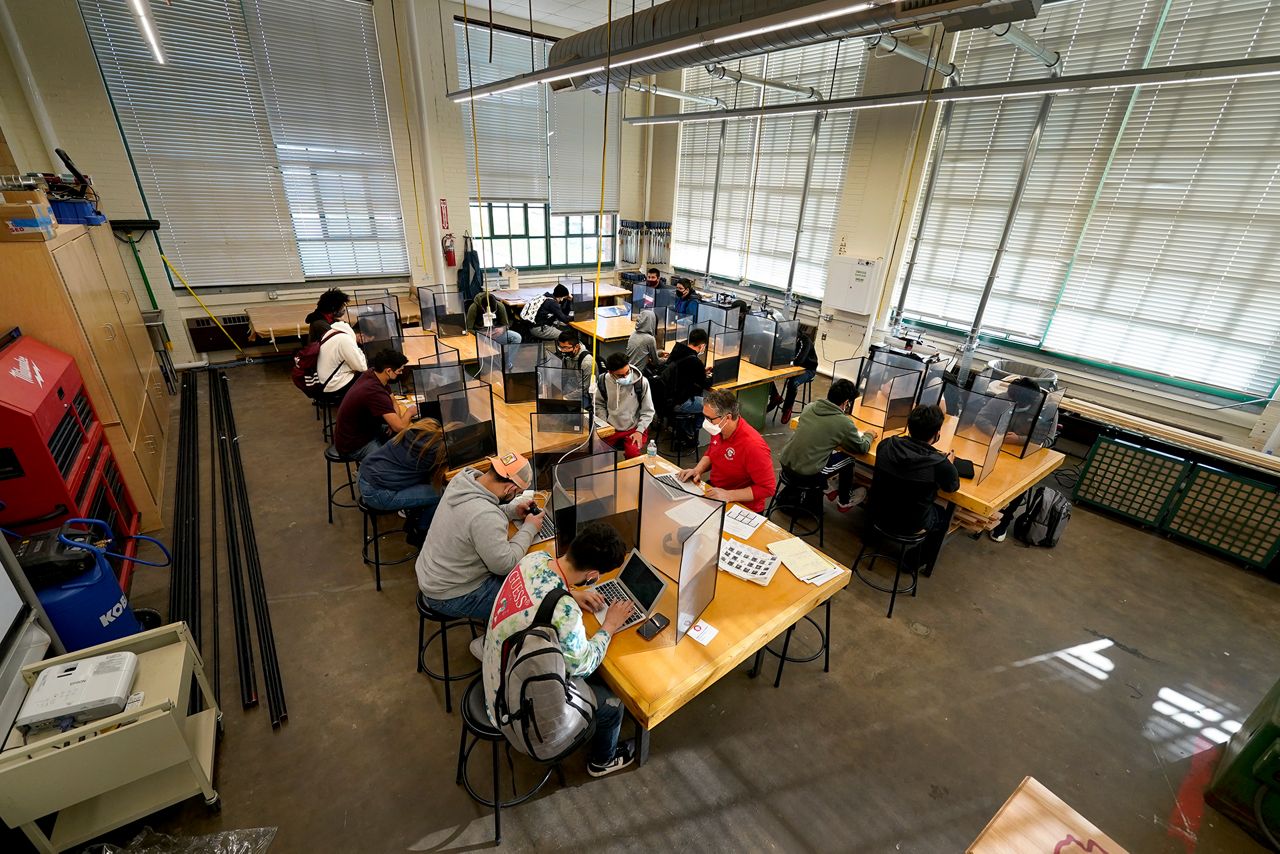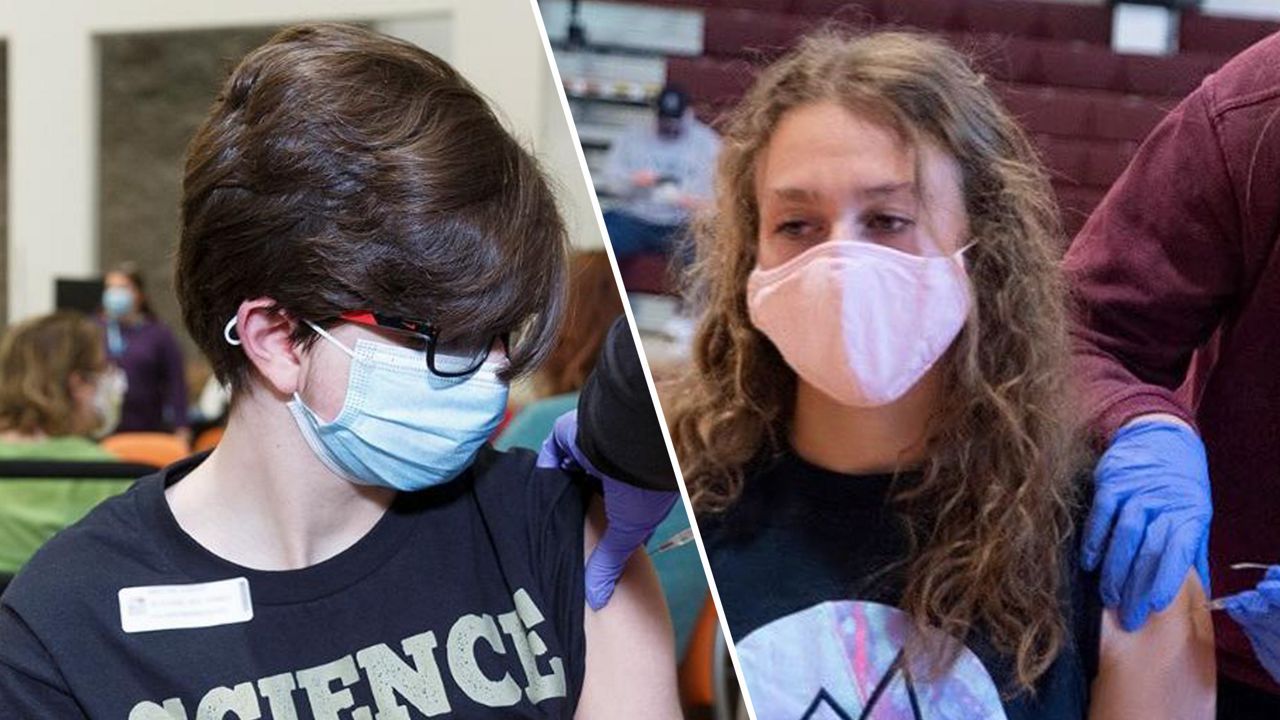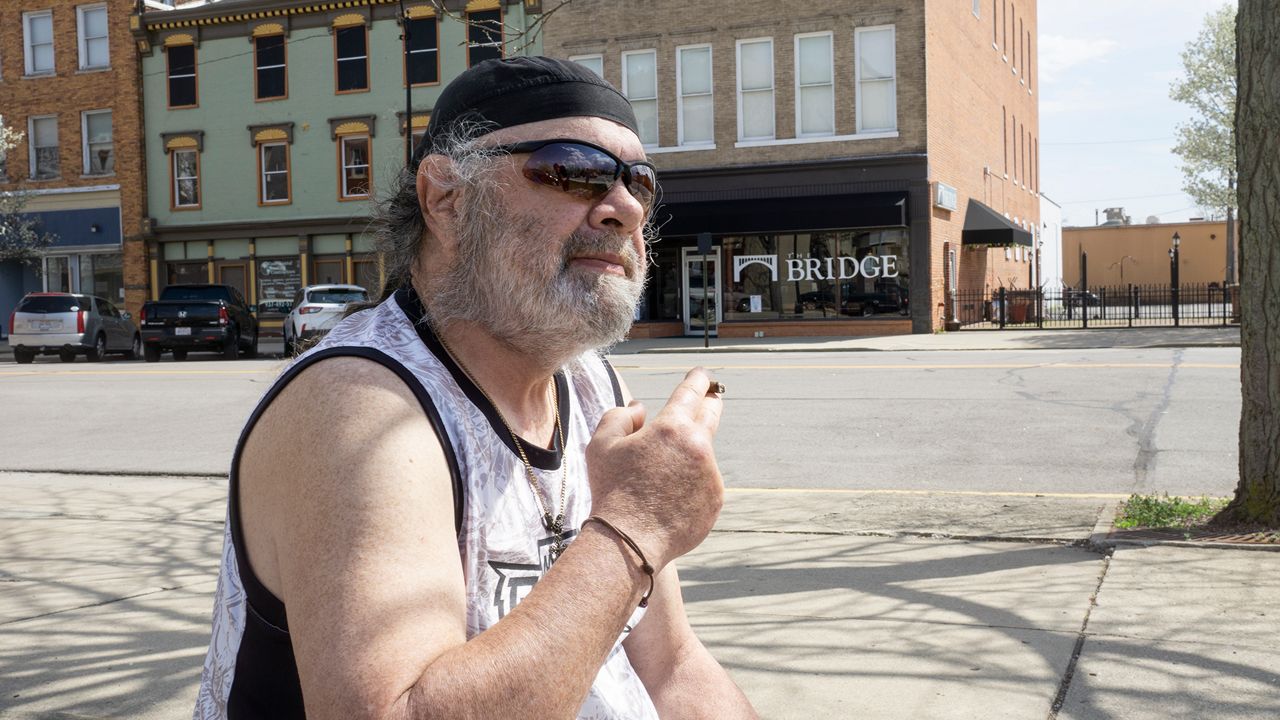COLUMBUS, Ohio — Providers in the state are now administering Pfizer-BioNTech vaccines at high schools for students 16 and older – Ohio’s latest effort to reduce transmission in schools.
What You Need To Know
- Children's hospitals and health departments are partnering with high schools
- With vaccines more available, officials said it's time for eligible teenagers to get shots
- Parents must provide consent before minors can get vaccinated for COVID-19
COVID-19 vaccines have become more available in Ohio this week for residents 16 and older, including eligible high school students. If getting a shot at schools is not an option, state officials encouraged familiesThursday to look for Pfizer clinics in the community to get older teenagers immunized.
Nationwide Children’s Hospital is operating a large-scale high school immunization effort in Central Ohio. Dr. Rustin Morse, the hospital’s chief medical officer, said providers are making progress immunizing the demographic.
“We're in the school districts, now vaccinating at the schools, and the uptake has been quite good, but it could be better,” Morse said Thursday. “There's almost no reason for a healthy, 16-year-old child not to get vaccinated to help protect him or herself, their family and the community.”
COVID-19 numbers in Ohio schools worsened this week, according to Spectrum News 1’s tracker, which now shows 47,054 total student infections. The Ohio Department of Education reported 1,171 new student cases on Thursday, up from 635 new cases reported the previous week.
Hilliard City Schools, one of the districts that is vaccinating its students via Nationwide, said there was less demand for the shots at its Pfizer clinic Wednesday than officials were expecting.
The clinic came together quickly in April after the state announced vaccine providers were encouraged to begin “closed-pod” clinics for schools, workplaces, churches and other communities, said Mike Abraham, the director of student wellbeing for Hilliard City Schools.
The district was allocated 800 doses, which officials initially feared would not be enough, even if they just offered it to the seniors at the district’s three high schools.
“We, as a district, started talking, how are we going to give this vaccine? If we just throw it out there, we're obviously going to get more than 800. So, we put it out to seniors and had parents sign up. What we found was we weren't getting as many sign ups as we’d thought,” he said.
It turned out that quite a few students had already been vaccinated, and Abraham said there were more hesitant families than they were expecting.
For minors, parental consent is required for vaccination, though the parent does not need to be present when the shot is administered.
“There are a lot of parents out there who don't believe in getting their children vaccinated, so the numbers that we were getting coming back in for those seniors was nothing even close to the 800,” he said.
The district decided to open registration to all students and more than 600 signed up to be vaccinated. At Hilliard Davidson High School, students were dismissed from class to get the shot at the school’s large athletic fieldhouse. After their shots, they went back to class for the rest of the afternoon. Hillard Bradley and Darby high school students took school busses over to Davidson for their shots.

Vaccine trials are progressing ahead of schedule for younger age groups not yet authorized for COVID-19 vaccinations. Dr. Robert Frenck of Cincinnati Children’s Hospital, one of four hospitals in the U.S. which began a trial for the Pfizer vaccine on 5- to 11-year-olds last month, said this week that the 12 and older age group could become eligible for the Pfizer vaccine in just a few weeks, and emergency use authorization for children 5 and older could come as soon as August or September.
Until then, Gov. Mike DeWine on Thursday encouraged young people in Ohio who are eligible to get vaccinated.
“I would just say, if you have a child who's 16 or over — time to get the child vaccinated. It's really time to do it. We're trying to make it available in schools in some places, but there's slots out there, and all you have to do is find the Pfizer," he said. “There are a lot of openings at places that have Pfizer. Get your son, get your daughter in. Get them vaccinated.”
Abraham said it is the school’s job to make the vaccine available, and while he thinks vaccination is wise, students and families are advised to make the decision together.
“That’s a family decision, and that's not something that in my position I would try to sway either way,” he said.
The Knox County Health Department is administering more than 500 doses of the Pfizer vaccine at Centerburg High School Saturday at a walk-in clinic.
On April 23, Nationwide will vaccinate 400 students at Canal Winchester High School during the school day, and Mercy Health is holding a closed-pod clinic at St. Francis de Sales School that day in Toledo. Mercy Health also held a clinic at Perrysburg High School, south of Toledo, on Monday, April 12.
Akron Children’s Hospital is partnering with public and private high schools in Summit, Portage and Wayne counties to hold clinics for students. On Wednesday, Tallmadge and Woodridge high schools were the first schools to vaccinate students with the hospital.
Akron Children's held its first two student vaccination clinics at local high schools.
— Akron Children's Hospital (@AkronChildrens) April 15, 2021
Woodridge senior Sarah Abood, 18, was eager to get the vaccine so she could feel safer around friends and family, and so that she could participate in senior activities. #VaccinesSaveLives pic.twitter.com/uHJzwYSj4h
The Medina County Health Department is partnering with several high schools, according to a statement from Health Commissioner Krista Wasowski. Using Pfizer vaccines, like all the other providers starting school initiatives, the department held an April 10 clinic at Cloverleaf High School, an April 16 clinic at Highland High School and an April 17 clinic at Brunswick High School.
“The Health Department has started to work with local school districts to make access to the vaccine convenient for students and parents to schedule an appointment if they wish to do so,” Wasowski said. “With upcoming graduations, proms and summer gatherings, using all tools available will help protect one another in these settings and prevent potential spread.”






